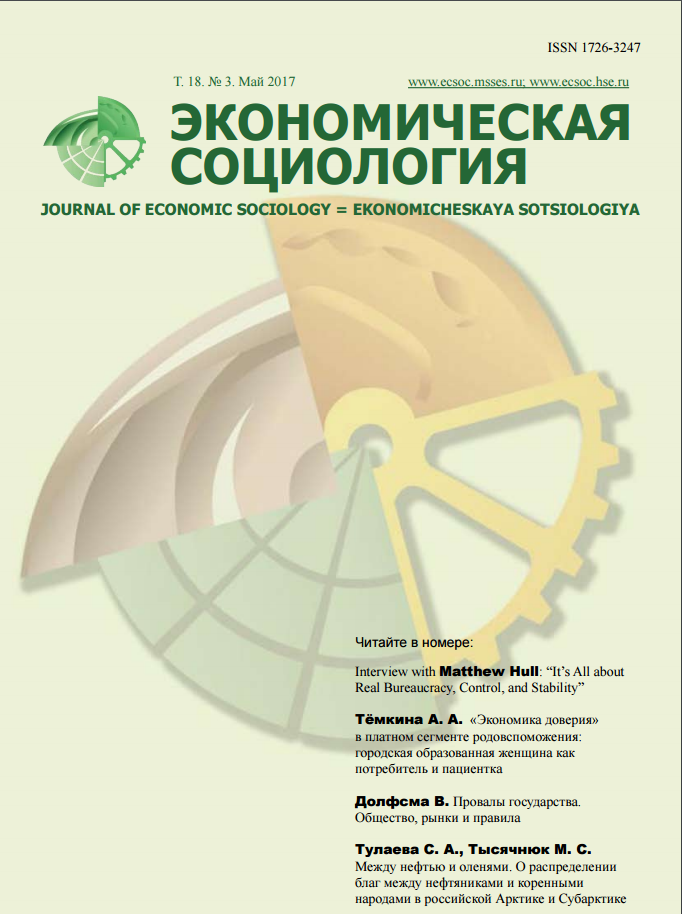Between Oil and Reindeer
Benefit Sharing Agreements between Oil Companies and Indigenous People in Russian Arctic and Subarctic Regions
Abstract
This research provides insight into various modes of benefit-sharing agreements between oil and gas companies and indigenous people in the Russian Arctic and Subarctic regions. We indicate three main modes of benefit sharing, as follows: (1) paternalism, (2) corporate social responsibility, and (3) partnership. The paternalistic mode is characterized by a hierarchical type of interaction, which implies a patron and clients. This system of obligations is based on practices of informal interaction, and the decision-making process is neither formal, nor transparent. The mode of corporate social responsibility aims to raise investment attractiveness and the productive efficiency of the company, supporting its image as a socially responsible operator. In this mode, the key decisions are made by the company executives in view of state legislation, corporate policies, international standards, and investors’ demands. Finally, the partnership mode suggests equal opportunities for dialogue and decision making for all sides involved — the state authorities, companies, local people, and experts. It is based on global standards that protect the rights of local indigenous communities. This work examines the factors that influence those modes and their efficiency. It asks what is most important in their making: Is it regional specifics, dependency from international actors, details of corporate policies, or the level of local community organization? What instruments of benefit sharing turn out to be most favorable in the Russian context? Our research was conducted using qualitative research methods in three regions of Russia (Nenets Autonomous Okrug [NAO], Khanty-Mansi Autonomous Okrug, and Sakhalin). The article is based on the materials of several field expeditions to NAO in 2011 and 2017, Khanty-Mansi Autonomous Okrug in 2014, and Sakhalin in 2013 and 2015. The main sources for analysis were interviews with representatives of oil companies, authorities, indigenous peoples, and the expert community. A total of 130 semi-structured interviews were conducted. In addition, we used materials from observation and document analysis (Russian legislation, international standards, and corporate reports).













